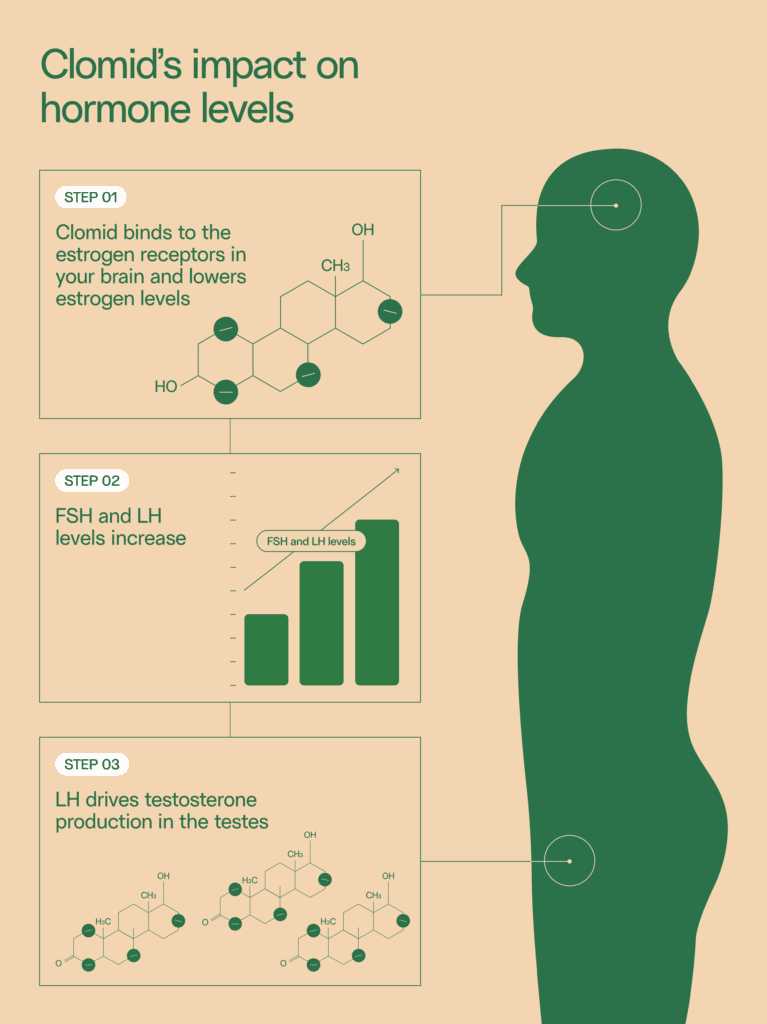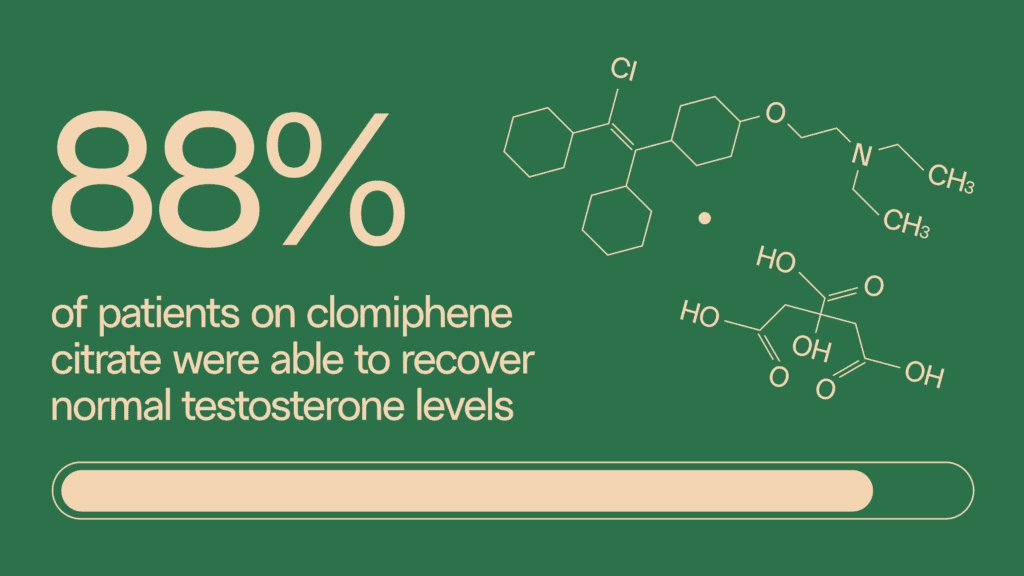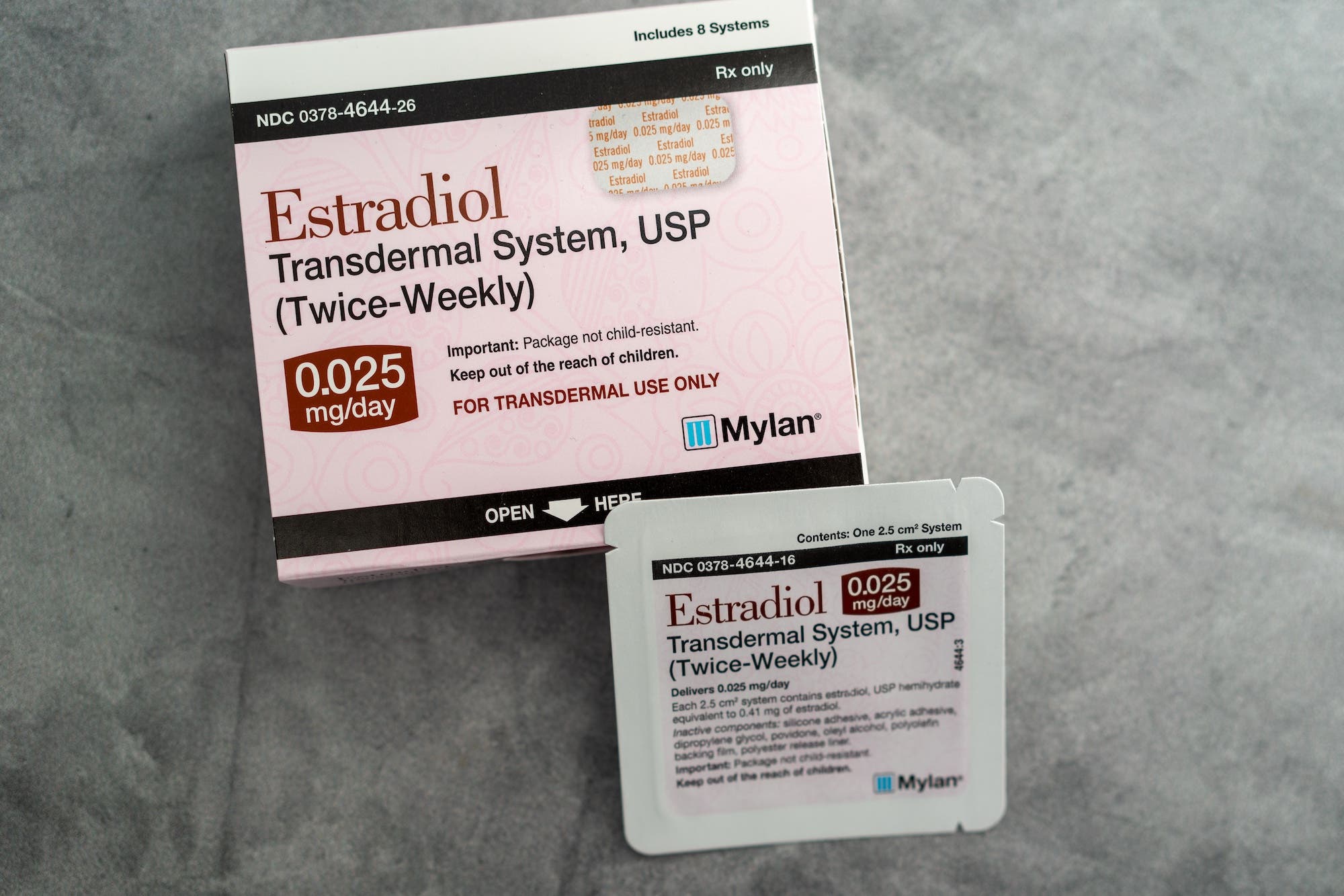Several athletes have been penalized in recent years for using the fertility drug Clomid, which anti-doping authorities have banned. But what exactly is Clomid, how is it used to treat infertility — both male and female — and is it actually a performance-enhancing drug? Let’s explore the current scientific research on this drug and demystify some of its stigmas.
Key takeaways
- Clomid is the name for a fertility drug often prescribed for female-factor infertility.
- Clomid can also be used to treat male-factor infertility including hypogonadism (low testosterone), and can increase sperm count and sperm motility. However, it’s not FDA-approved for that use.
- It’s against league regulations for athletes to take Clomid without a special exemption. But public bans due to Clomid use may perpetuate the negative stigma attached to fertility treatment for men.
What is Clomid? How is Clomid used to treat male-factor infertility?
Clomid, the brand name for clomiphene citrate, is often described as a “female fertility drug,” as it has traditionally been used to treat ovulatory dysfunction. Clomid is a selective estrogen receptor modulator, meaning that it binds to the receptors in your brain that would typically bind with estrogen. It therefore lowers estrogen production and increases production of follicle-stimulating hormone (FSH) and luteinizing hormone (LH), stimulating ovulation.

However, doctors also prescribe Clomid to treat hypogonadism (low testosterone levels) and male infertility. Male hypogonadism is a clinical and biochemical insufficiency syndrome that affects testosterone production and possibly spermatogenesis, the production of sperm.
Testosterone replacement therapy (TRT) was long the standard treatment for hypogonadism, but it has several negative side effects. TRT can increase the likelihood of blood clots, blood cancer, severe cardiovascular disease, and prostate cancer. Studies show using testosterone replacement medication can also shut down your body’s own natural sperm and testosterone production, especially if used over a longer period.
Since the 1970s, Clomid has been used “off-label” — that is, without a specific FDA approval — as an alternative medication to treat low testosterone and male-factor infertility. A 2022 systematic review highlighted clomiphene citrate as an effective therapy for improving symptoms of hypogonadism, with a lower chance of side effects and better safety profile compared to the alternative treatment options.
Clomid has also been used alongside testosterone replacement therapy, to mitigate the side effects.
Clomid and testosterone levels
How does clomiphene citrate improve low testosterone levels? As mentioned earlier, Clomid increases levels of FSH and LH in the system. LH is the hormone that drives testosterone production in the testes. Clomid can ramp up the natural production of the hormone in such a way that testosterone levels increase without harming fertility.

According to a study published in the Journal of Urology, Clomid is an effective tool for treating male hypogonadism. The results found that about 88% of patients on clomiphene citrate were able to recover normal testosterone levels.
Testosterone is an important hormone. Not only is it involved in fertility and sexual health, it plays an essential role in the development of strength, muscle mass, and other critical body systems.
Low testosterone in cisgender men can cause:
- Hair loss
- Decreased muscle mass
- Reduced bone mass results in an increased risk of osteoporosis
- Fatigue
- Irritability
- Low mood
- Reduced libido
- Erectile dysfunction
Clomid and sperm counts
As discussed above, Clomid is an estrogen-blocking medication that works by stimulating the pituitary gland to increase the secretion of essential male fertility hormones, including:
FSH and testosterone work together to promote sperm production. As a result of these increased hormone levels, studies have shown that Clomid can increase sperm concentration and motility by 4–5%, helping those with low sperm count or poor sperm motility achieve pregnancy.
Some people have a condition known as azoospermia, in which the ejaculate (semen) contains zero sperm. For patients with this condition, Clomid may help to resume sperm production and may increase the probability of successful sperm extraction from the testes. In a study of 42 azoospermic men prescribed clomiphene citrate, 64.3% had sperm present in their post-treatment semen analyses.
Can Clomid actually “enhance performance,” like steroids do?
Some athletes may try to boost their athletic performance, speed, muscle mass, or other physical attributes by taking synthetic testosterone such as anabolic steroids. Steroids increase the concentration of testosterone in the blood to levels that are far beyond natural levels.
This is a dangerous practice due to the number of harmful side effects of synthetic testosterone. It will also result in penalties and bans due to the regulations that prohibit professional athletes from cheating in this way.
Does Clomid raise testosterone levels like steroids do? We know that clomiphene citrate can raise testosterone levels in those who have been diagnosed with hypogonadism. But studies of its effects on people with normal testosterone levels are very limited. One small study found that, although Clomid raises testosterone levels indirectly, it can still result in very high testosterone if taken by men who already have normal hormone levels.
Some people may also use Clomid to counteract the side effects of continued anabolic steroid use, which results in the body reducing or fully stopping testosterone production altogether. Clomid would then mask the symptoms of anabolic steroid use.
Therefore, it may be fair to consider Clomid a drug that increases testosterone. You might find it in “black market” products sold online, touted as “performance enhancers.”
Clomid bans in professional sports
Elite athletes must adhere to the strict global standards outlined by the World Anti-Doping Agency (WADA) Prohibited List to ensure they are not using substances or methods that enhance performance or cause adverse health effects.
At present, Clomid is not FDA-approved for use by men for any condition. According to the USADA, clomiphene citrate is prohibited for use by athletes because it is classed as an “S4 Category of Hormone and Metabolic Modulator.”
In recent years, there have been a number of controversies surrounding professional athletes who have been penalized after random drug tests found traces of clomiphene citrate. Examples include boxer Conor Benn, baseball player Pedro Severino, and NFL athlete Robert Mathis.
Can athletes take Clomid for fertility issues?
Athletes can apply for a Therapeutic Use Exemption (TUE), which would give them permission to take a substance on the WADA Prohibited List for a specific amount of time, based on medical necessity.
It is unclear whether the professional athletes who have gotten caught with Clomid were taking the drug to enhance their performance or for fertility treatment. In some cases, the athletes have publicly stated that they took clomiphene citrate as part of fertility treatment. However, none had applied for an exemption.
The stigmatization of male-factor infertility
Research into male factor infertility has often fallen by the wayside, with the focus concentrating on female reproductive issues. It is an area that requires much more research in order to support men on their journeys into fatherhood, given that approximately half of all cases of infertility involve the male factor (AKA sperm health).
Public bans and judgments of athletes on social media can further perpetuate the stigma attached to men seeking help for fertility issues. Society can do more to support men who require fertility treatment, in order to minimize the negative associations and increase the accessibility of care.



